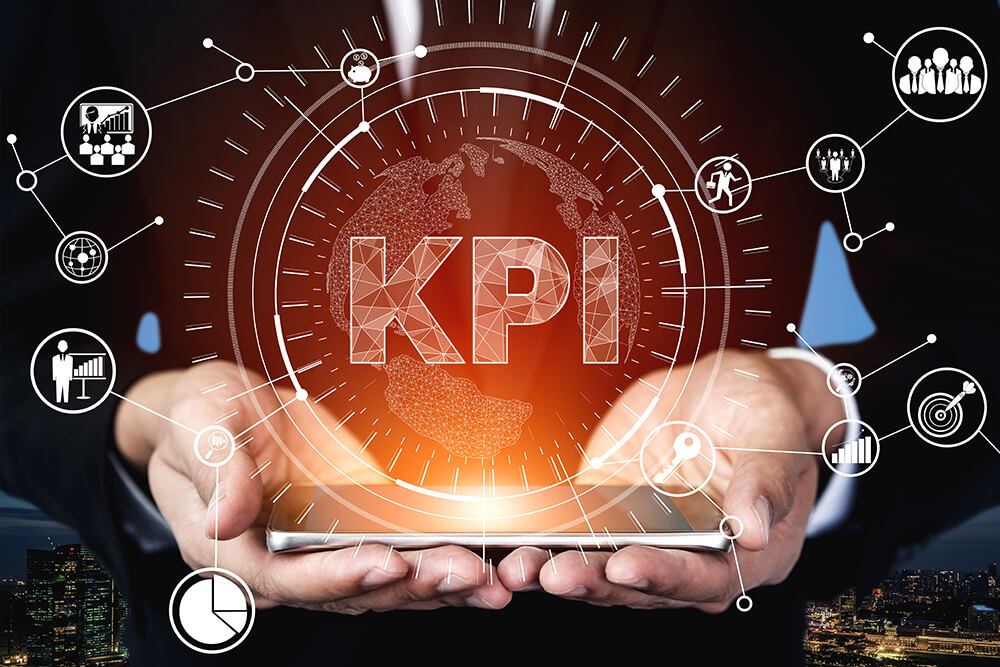How to Use KPIs
2 July 2021
Many people have heard the acronym KPIs, which stands for key performance indicators, but in my experience, there is a lot of misunderstanding about how to appropriately use these very important tools. I help companies not only develop KPIs but also enable them to use them effectively in practice. In this article, I would like to recap the key insights about using KPIs well.

KPIs help you track progress toward strategic goals in your organization. When KPIs are used properly they can propel the success of an organization. When designed correctly, they indicate how well or not well you’re doing. In order to have effective KPIs, you first need to have your goals clarified. If you measure or try to measure something, but don’t have a clear idea of what your strategic goals are, you’ll get lost very quickly.
So, the first step in using KPIs effectively is to define your strategic goals and only then define the metrics that will track those goals.
KPIs are Useful Decision-Making Tools
KPIs reduce uncertainty. They focus attention on a small, manageable number of key indicators. This is useful to inform decision-making and ultimately to improve performance.
There are no KPIs that are going to be perfect. It’s important to keep in mind that you can’t find single metrics to holistically and comprehensively measure aspects of your business such as customer satisfaction or innovation. But what you can do is look at indicators that can give you clues to how you’re doing on those things where one measurement can’t be conclusive or fully indicative.
I like to think of KPIs in terms of what a doctor assesses when you go into her practice for an appointment and tell them you’re not feeling well. The healthcare professionals will collect indicators—blood pressure, pulse, temperature, listen to your heart, look at your throat, take blood and urine samples, etc. If they see something off-kilter with one of these indicators, the doctor will order more tests to figure out what ails you. So, the doctor uses indicators to understand your health just like a company can use indicators to determine progress toward strategic objectives.
KPIs can be very effective if you develop the right ones for your organization and avoid common mistakes. Keep in mind, just because something is easy to measure, doesn’t make it a good candidate to be reported on as a KPI. Similarly, just because “everyone else is measuring it” doesn’t make a KPI adequate for your organization.
As mentioned, KPIs should be used to inform decision-making, but some organizations mistakenly use them as enforcement tools to control people’s behaviors. For example, a call center might have metrics in place to handle calls faster and more efficiently. If management starts to wield these KPIs as an enforcement tool, people can begin to easily and quickly “game’ the system to avoid reprimands.
KPIs should empower people to make better-informed decisions, but not be used to micromanage employees.
Another mistake organizations commonly make when implementing KPIs is they automatically assume the financial metrics they collect and report on to regulators and external stakeholders are also internal KPIs. Just because you are already collecting certain metrics doesn’t make them useful KPIs.
To have KPIs work effectively for your organization, you need to define a small set of really meaningful indicators that reduce uncertainty and that empower people to use that information to make their lives better and easier. The right KPIs for your organization will help your employees with better decision-making and gain more clarity about how well they’re delivering the strategic goals of the organization.
By developing the right KPIs for your organization, you can realize an advantage over your competitors. To help organizations design key performance indicators, I created this KPI template (and still use it today with my clients) that’s based on more than 25 years of practical experience helping companies develop meaningful business metrics.
To properly use KPIs in your organization, be sure:
- Your goals are clarified
- KPIs are used to inform decision-making and not as enforcement tools
I’ve also developed a key performance indicator library that is a valuable resource you can use to see some of the most meaningful KPIs developed by organizations. Whether you’re just beginning to develop relevant KPIs for your organization or team, or you’re wondering how to troubleshoot the ones you have, the library is a great starting point to learn more.
Where to go from here
If you would like to know more about measuring HR effectiveness, check out my articles on:
- How Do You Measure Your Employer Brand?
- How To Measure HR Effectiveness
- Why eNPS is a Great Way of Measuring Staff Engagement
Or browse the KPI Library to find the metrics that matter most to you.
Related Articles
The Top 5 Tech Trends In 2024 Everyone Must Be Ready For
Once again, we’ve reached the time of year when we look ahead at what technology has in store for us in 2024.[...]
The Amazing Ways Coca-Cola Uses Generative AI In Art And Advertising
Some say that in the very near future, we’ll need to either adopt artificial intelligence (AI) or be made redundant by it – or by others using it.[...]
The 5 Biggest Risks of Generative AI: Steering the Behemoth Responsibly
In our contemporary world, the pressures of the professional sphere often encroach upon our personal space, giving rise to stress and an overwhelming sense of dread.[...]
3 Ways To Reinvent Your Products And Services For The Future
With the rise of the metaverse and web3 technologies, there’s no denying the next evolution of the internet is already underway.[...]
Virtual Influencer Noonoouri Lands Record Deal: Is She The Future Of Music?
Teenage influencer Noonoouri has 400,000 followers on Instagram and has starred in fashion campaigns for Dior, Balenciaga and Valentino.[...]
Managing Stress at Work: 5 Top Tips Anyone Can Follow
In our contemporary world, the pressures of the professional sphere often encroach upon our personal space, giving rise to stress and an overwhelming sense of dread.[...]
Sign up to Stay in Touch!
Bernard Marr is a world-renowned futurist, influencer and thought leader in the fields of business and technology, with a passion for using technology for the good of humanity.
He is a best-selling author of over 20 books, writes a regular column for Forbes and advises and coaches many of the world’s best-known organisations.
He has a combined following of 4 million people across his social media channels and newsletters and was ranked by LinkedIn as one of the top 5 business influencers in the world.
Bernard’s latest book is ‘Generative AI in Practice’.










Social Media